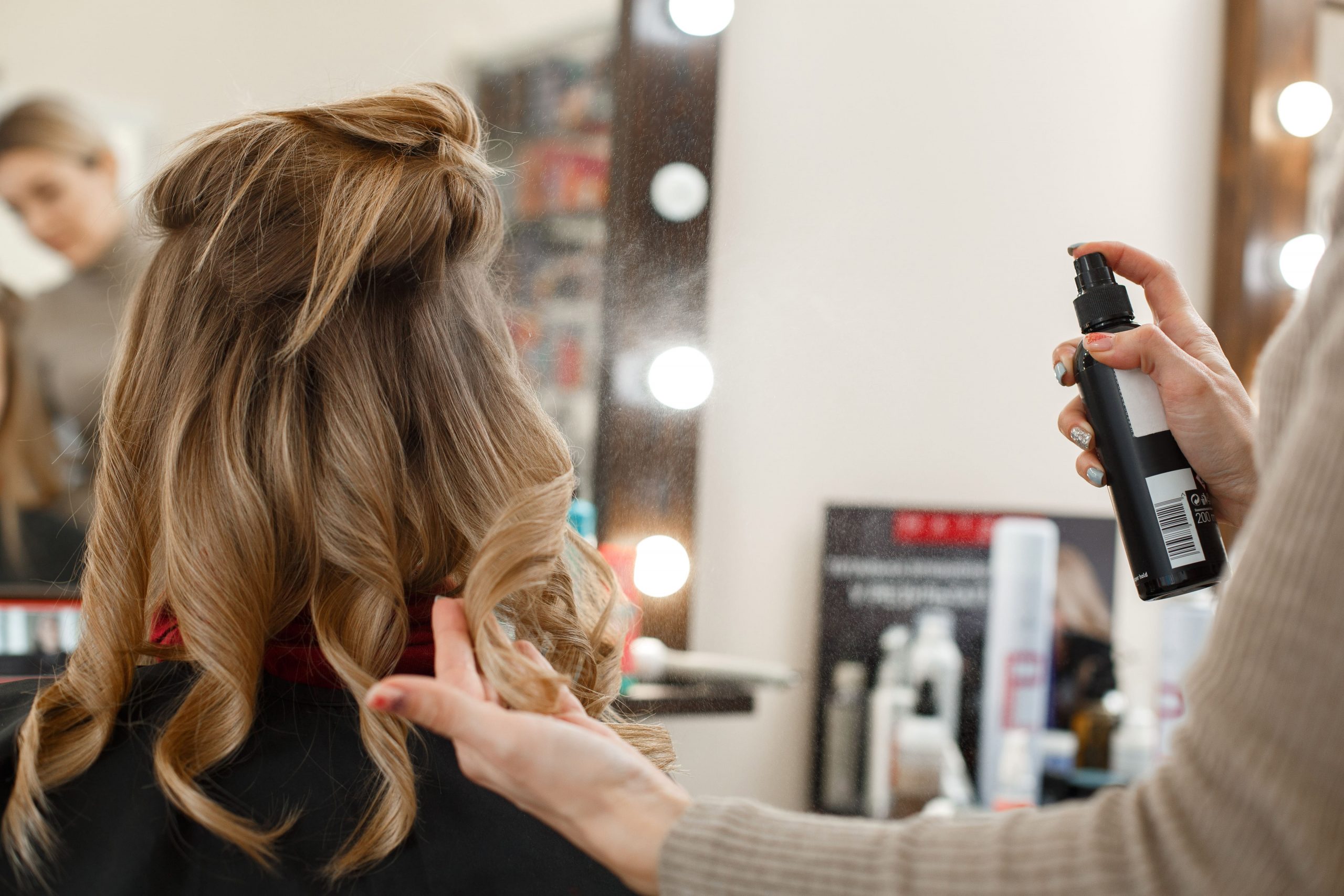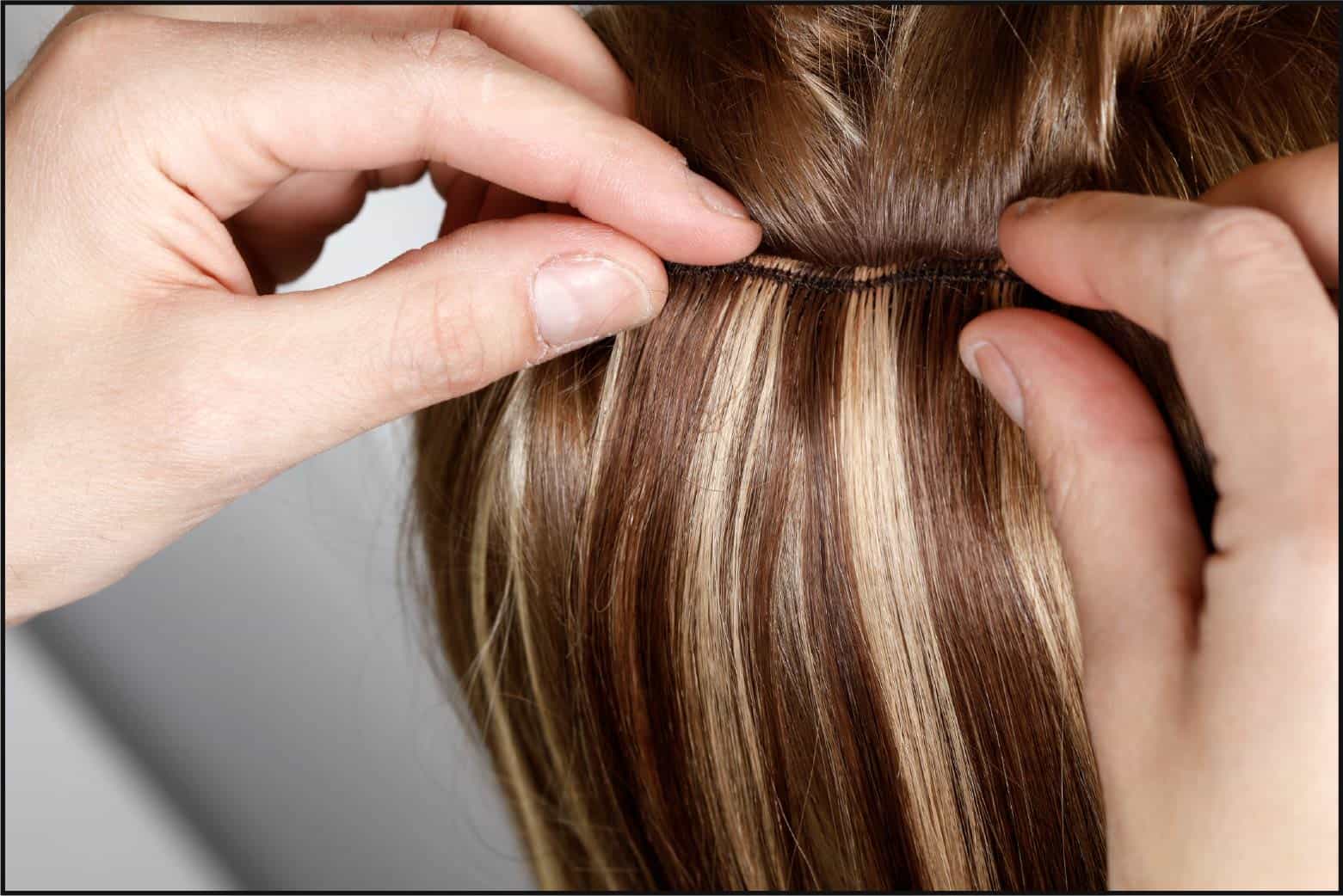Are There Any Restrictions on Who Can Purchase Hair Extensions?
Generally, no, there aren't restrictions on who can purchase hair extensions1. However, regulations can apply to the usage of hair extensions1, especially in salon settings. A cosmetology license2 is usually required for salon professionals3 to apply, style, and maintain hair extensions1, particularly when it involves intricate techniques like weaving, braiding, or bonding. This distinction is crucial for salon owners and professional stylists as it impacts their service offerings and compliance with local laws.
As someone deeply involved in the hair extension industry, I understand the importance of navigating these nuances to provide clients with safe and effective hair extension solutions. Let's explore this further by diving into the essentials of licensing, common beauty salon violations4, and categorization of hair salons.
Do You Need a Cosmetology License to Put in Hair Extensions?
Navigating the world of hair extensions1 goes beyond mere fashion; it's a profession that intertwines artistry and technical expertise. As someone rooted in this industry, I can affirm that while anyone can technically buy hair extensions1—from independent enthusiasts to salon professionals3—implementing them often requires a cosmetology license2.
Dive Deeper
Licensing standards vary from state to state, but generally, a cosmetology license2 ensures professionals have met the training requirements needed to handle delicate hair treatments. The rationale is simple: hair extensions1, if not applied correctly, can lead to scalp damage or hair loss, impacting client satisfaction5 and salon reputation severely. Licensed professionals are trained in:
- Hair and Scalp Anatomy: Understanding the natural layout is fundamental to applying extensions safely.
- Sanitation Practices: This isn’t just about clean tools; it’s about ensuring the client's health and safety.
- Application and Removal Techniques: Proper training in these areas prevents damage and ensures longevity of both real hair and extensions.
For salon owners, employing licensed stylists is non-negotiable. It's an assurance of quality and a safeguard against potential legal ramifications. After all, the beauty business isn't just about aesthetics; it's about trust and care.
What Are Some of the Most Common Beauty Salon Violations?
Even the most skilled beauty professionals can stumble upon common compliance pitfalls. As a supplier connected to over 2000 salon clients, I have witnessed first-hand the repercussions of not adhering to industry standards.
Dive Deeper
Licensed or not, beauty salon violations4 can be a setback for any business. Some common issues include:
- Sanitization Lapses: Failure to sterilize equipment can lead to cross-contamination.
- Improper Licensing: Operating without proper credentials not only results in fines but also tarnishes a salon's reputation.
- Unqualified Staff: Employing unlicensed workers for specialized beauty treatments is a legal risk.
- Building Code Violations: This might seem minor, but safety codes are crucial for operation.
To sidestep these pitfalls, salons must adhere to local regulations, maintain cleanliness, and ensure all staff are qualified for their roles. The key is vigilance and continuous education.
Here’s a comparison table that highlights some common violations and their potential repercussions:
| Violation Type | Description | Potential Repercussions |
|---|---|---|
| Sanitation Lapses | Poor hygiene and equipment sterilization | Client infections, legal actions |
| Improper Licensing | Operating without necessary licenses | Fines, closure, reputational harm |
| Unqualified Staff | Hiring without verifying licensure | Inconsistent quality, potential legal issues |
| Building Code Violations | Not adhering to safety and facility codes | Safety hazards, legal penalties |
What Business Category Is a Hair Salon?
Ever wondered what category your business falls under? Understanding this is crucial not only for registration purposes but also for marketing and operational strategies.
Dive Deeper
Hair salons typically fall under the personal care services6 industry. This category encompasses businesses that provide beauty and grooming services, including hair, nails, and skin. In terms of operation, this classification allows you to understand your competition, service pricing norms, and marketing strategies within a broader context.
Why does this matter? Well, being categorized correctly influences everything from tax obligations to financial health monitoring. As a salon owner or aspiring entrepreneur, this insight isn't just a bureaucratic detail—it's a building block for business growth. Being deeply embedded in the fabric of the beauty industry, particularly with Plucharm Hair’s partnership with hundreds of stylists, I’ve seen how a nuanced understanding of business categorization can streamline operations.
What Is the Business Activity Code for Hair Salons?
Classifying your salon correctly can help in more ways than one might assume. For taxation and official documentation, understanding the business activity code7 is essential.
Dive Deeper
In North America, hair salons typically use the NAICS code 8121128, which categorizes the business under 'Beauty Salons.' This classification helps in several areas:
- Tax Reporting: Ensures the correct tax forms and rates are applied.
- Business Loans: Helps lenders assess the risk and understand the market.
- Market Research: Access resources specific to your industry category.
This isn’t just about ticking boxes; it’s about leveraging classification for economic opportunities. Knowing your code brings clarity to business reporting and aids in competitive analysis. My involvement with hundreds of businesses within this code has shown me the strategic edge it provides.
Conclusion
In conclusion, while no specific restrictions exist on purchasing hair extensions1, using them, especially in a professional setting, demands compliance with licensing and operational protocols. A solid grasp of business classifications and regulations helps ensure smooth salon operations and customer satisfaction. Embracing these principles with Plucharm Hair not only reinforces trust but also positions salons for success in a competitive industry.
By understanding and addressing these nuances, salon owners can better serve their clients, protect their businesses legally, and enhance their overall service quality. Stay informed, stay compliant, and watch your salon thrive.
-
Exploring various hair extension types can help you choose the best option for your needs. ↩ ↩ ↩ ↩ ↩ ↩ ↩
-
Understanding the significance of a cosmetology license can help ensure safe and effective hair extension application. ↩ ↩ ↩
-
Learn about the necessary qualifications for salon professionals to ensure quality service. ↩ ↩
-
Identifying common violations can help salon owners maintain compliance and avoid legal issues. ↩ ↩
-
Explore strategies to enhance client satisfaction and build trust in your salon. ↩
-
Learn about the personal care services category to better understand your competition and market. ↩
-
Understanding the business activity code can aid in tax reporting and market research. ↩
-
Discover how this code categorizes beauty salons and its implications for business operations. ↩





